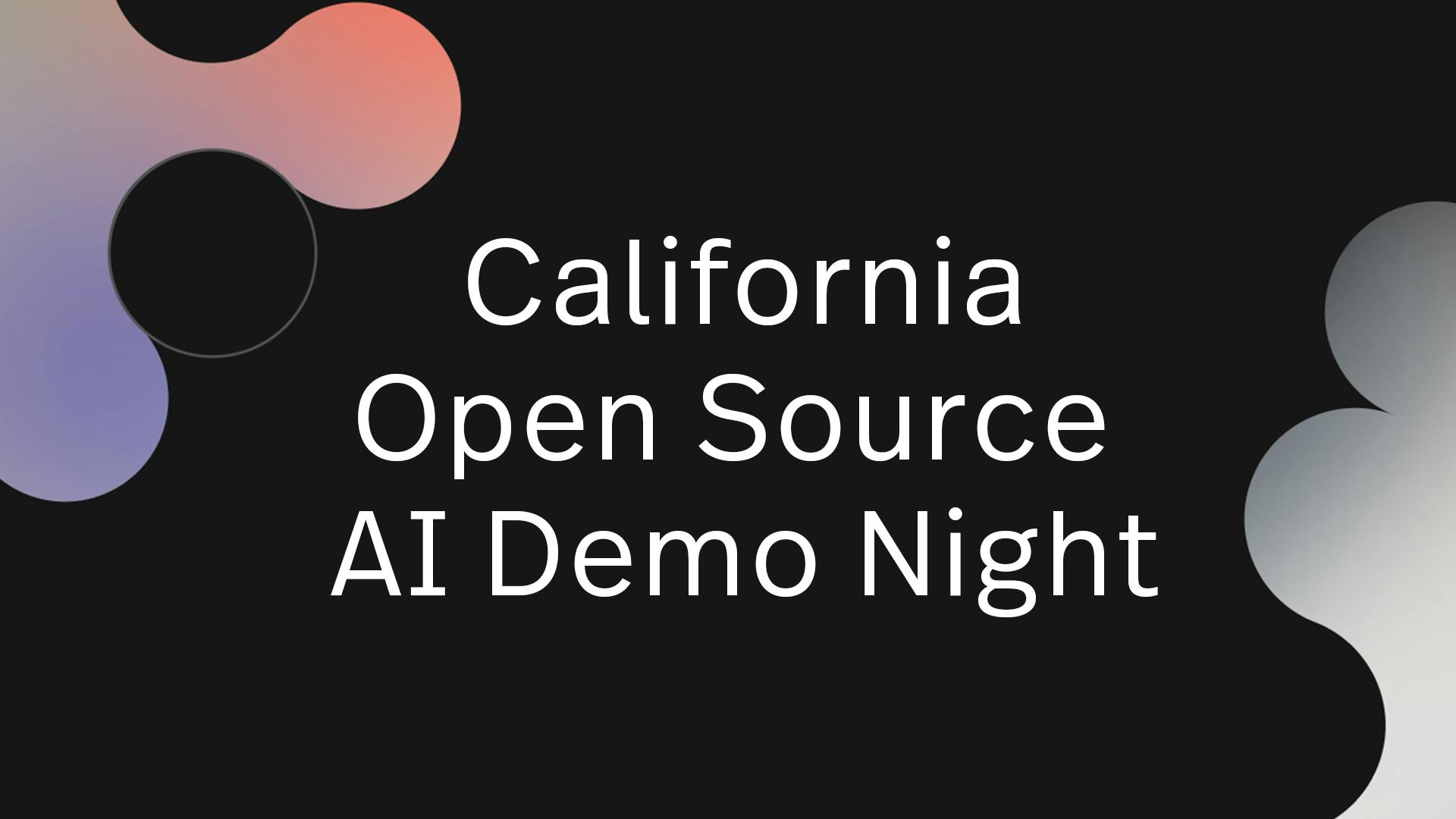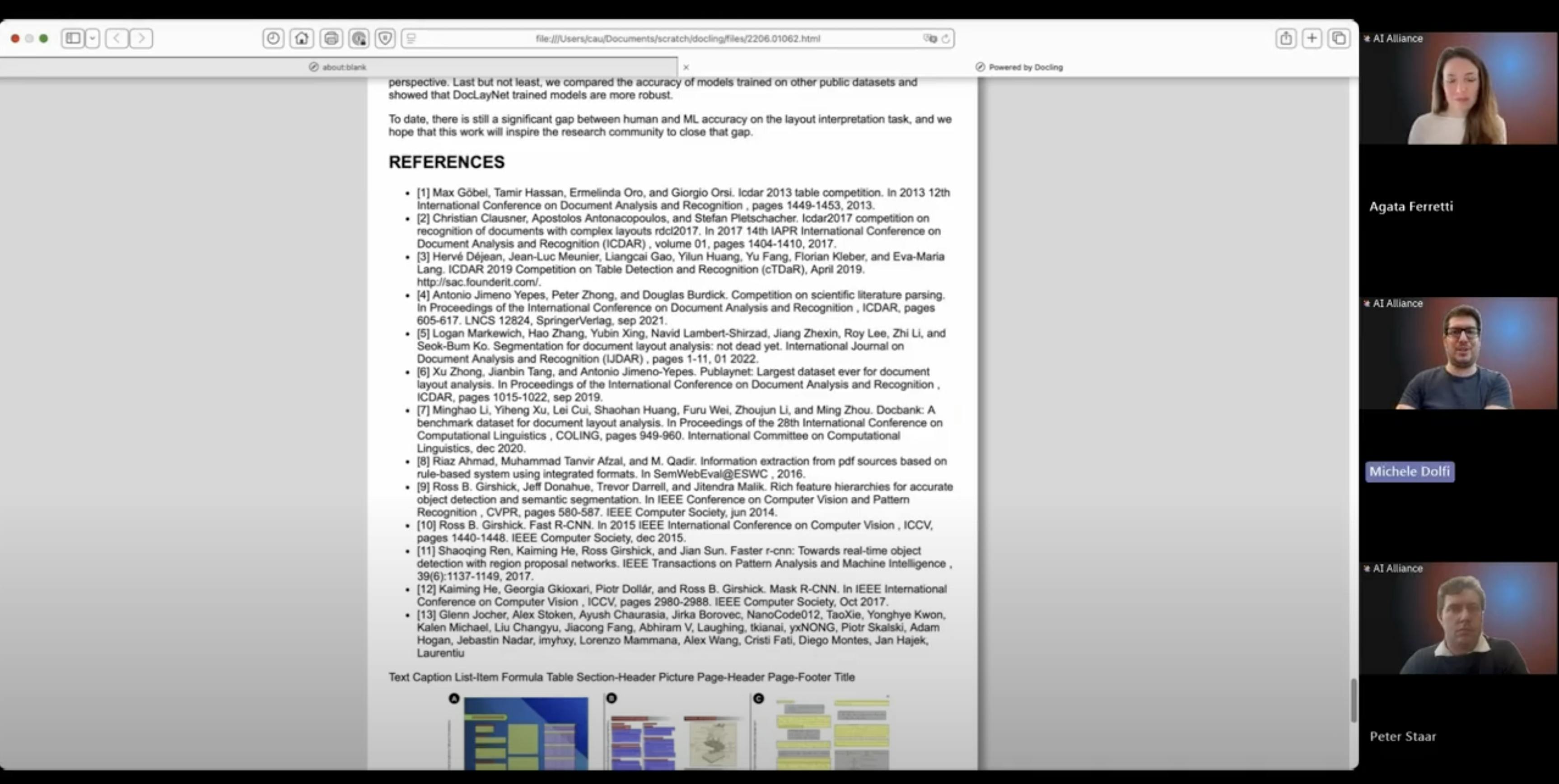On August 8th, The AI Alliance, in collaboration with Cerebral Valley and Ollama, hosted Open Source AI Demo Night in San Francisco, bringing together more than 200+ developers and innovators to showcase and celebrate the latest advances in open-source AI. There were 7 demo teams and a panel discussion on why open technologies and communities are essential to driving innovation in California.
The demo teams included:
- Ollama - helps developers run language models such as Llama 3.1, Mistral, Gemma 2, and others, locally on the computer or on a server cluster. Watch Michael Yang’s demo here: Tool calling with Ollama - How an LLM accesses external information.
- Continue – a leading open-source AI code assistant that connects any models and any context to build custom autocomplete and chat experiences inside the IDE. Watch Ty Dunn’s demo here: Using Continue to understand a brand new code library
- AgentOps – an industry-leading developer platform to test and debug AI agents. Watch Alex Reibman and Ajay Poshak demo LlamaFS here: LlamaFS: A self-organizing agentic filesystem
- CrewAI - Framework for orchestrating role-playing, autonomous AI agents. By fostering collaborative intelligence, CrewAI empowers agents to work together seamlessly, tackling complex tasks.Watch João Moura’s demo here: Build multi-agent automations with Crew.ai.
- Based Hardware – a fully open-source AI note taker that provides you with reminders, suggestions, and more; all in one simple app. Watch Nik Shevchenko’s demo here: Friend: An AI necklace you wear which records your day
- Datafog – an open source AI/ML platform with solutions to scan unstructured content in files for PII, either annotating, anonymizing, or redacting sensitive information. Watch Sid Mohan’s demo here: Using Open Source LLMs for PII data detection with DataFog
- Semikong - the World’s First Semiconductor Industry-Specific Large Language Model. Watch Nanda Kishore‘s demo here: SemiKong: The Open Source Semiconductor LLM powered by Llama
Demo Night also featured a panel discussion “AI in the Era of Open Innovation,” moderated by CEO & Founder Aitomatic Christopher Nguyen, and featured Matt White, Executive Director of PyTorch Foundation and General Manager of AI, Linux Foundation; Charles Xie, CEO of Zilliz; and Sharon Zhou, CEO of Lamini. The panelists underscored the importance of having access to state of the art open-source AI models in building their company by fine-tuning the models to their respective company needs. Moreover, the panelists opposed California Senate Bill 1047, highlighting that it would stifle open-source AI development and have a downstream chilling effect on AI investment and expansion.




